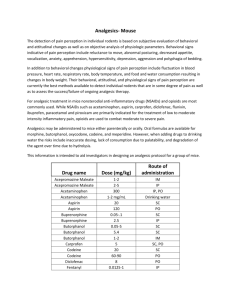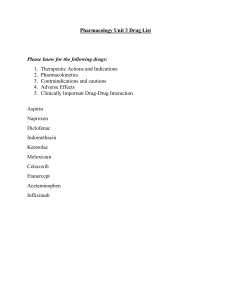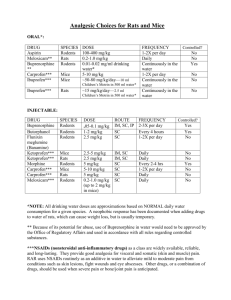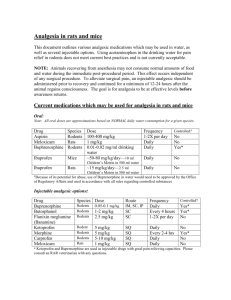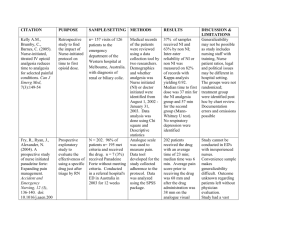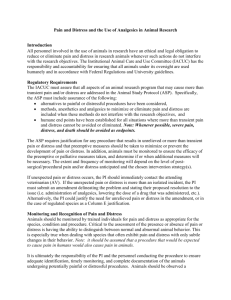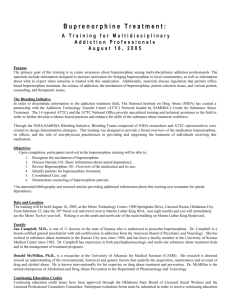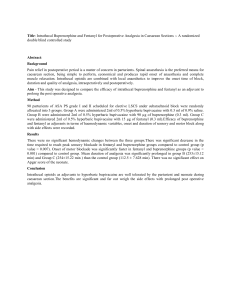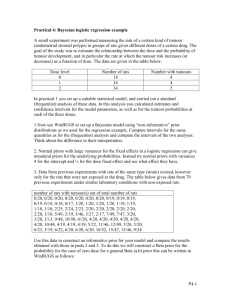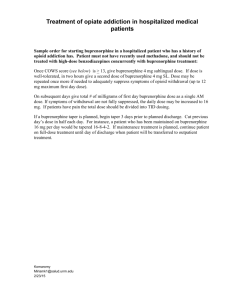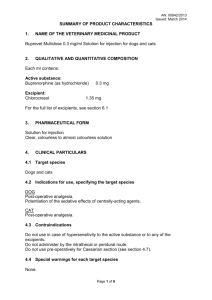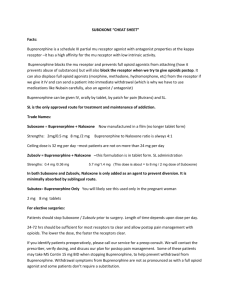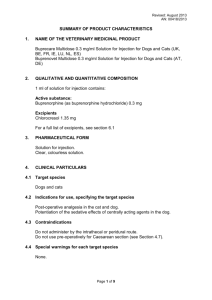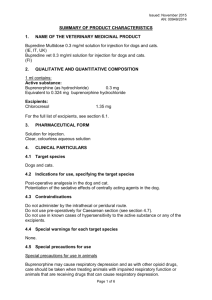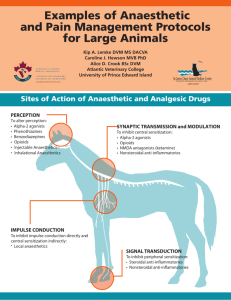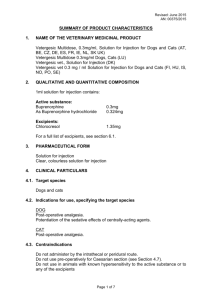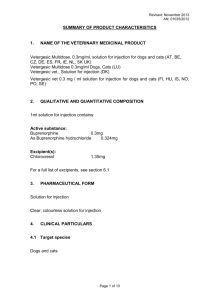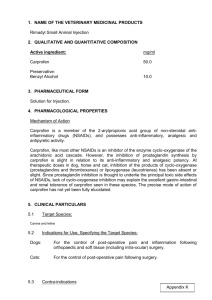Analgesics in Rats
advertisement
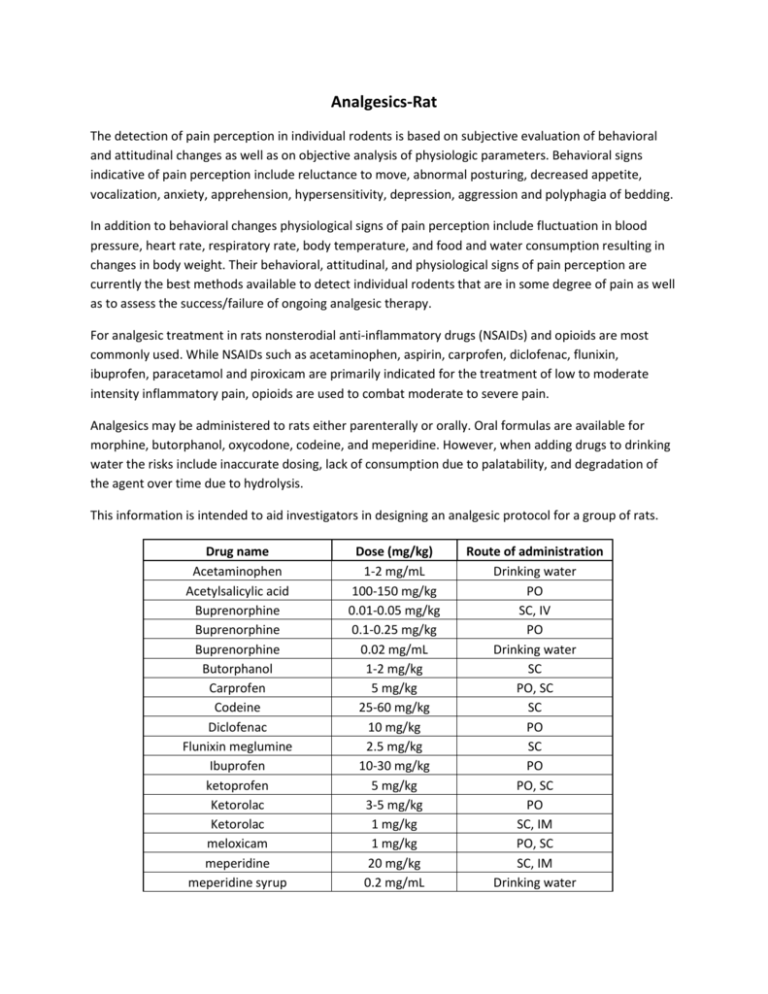
Analgesics-Rat The detection of pain perception in individual rodents is based on subjective evaluation of behavioral and attitudinal changes as well as on objective analysis of physiologic parameters. Behavioral signs indicative of pain perception include reluctance to move, abnormal posturing, decreased appetite, vocalization, anxiety, apprehension, hypersensitivity, depression, aggression and polyphagia of bedding. In addition to behavioral changes physiological signs of pain perception include fluctuation in blood pressure, heart rate, respiratory rate, body temperature, and food and water consumption resulting in changes in body weight. Their behavioral, attitudinal, and physiological signs of pain perception are currently the best methods available to detect individual rodents that are in some degree of pain as well as to assess the success/failure of ongoing analgesic therapy. For analgesic treatment in rats nonsterodial anti-inflammatory drugs (NSAIDs) and opioids are most commonly used. While NSAIDs such as acetaminophen, aspirin, carprofen, diclofenac, flunixin, ibuprofen, paracetamol and piroxicam are primarily indicated for the treatment of low to moderate intensity inflammatory pain, opioids are used to combat moderate to severe pain. Analgesics may be administered to rats either parenterally or orally. Oral formulas are available for morphine, butorphanol, oxycodone, codeine, and meperidine. However, when adding drugs to drinking water the risks include inaccurate dosing, lack of consumption due to palatability, and degradation of the agent over time due to hydrolysis. This information is intended to aid investigators in designing an analgesic protocol for a group of rats. Drug name Acetaminophen Acetylsalicylic acid Buprenorphine Buprenorphine Buprenorphine Butorphanol Carprofen Codeine Diclofenac Flunixin meglumine Ibuprofen ketoprofen Ketorolac Ketorolac meloxicam meperidine meperidine syrup Dose (mg/kg) 1-2 mg/mL 100-150 mg/kg 0.01-0.05 mg/kg 0.1-0.25 mg/kg 0.02 mg/mL 1-2 mg/kg 5 mg/kg 25-60 mg/kg 10 mg/kg 2.5 mg/kg 10-30 mg/kg 5 mg/kg 3-5 mg/kg 1 mg/kg 1 mg/kg 20 mg/kg 0.2 mg/mL Route of administration Drinking water PO SC, IV PO Drinking water SC PO, SC SC PO SC PO PO, SC PO SC, IM PO, SC SC, IM Drinking water Morphine Nalbuphine Oxymorphone Pentazocine Piroxicam 2-5 mg/kg 4-8 mg/kg 0.2-0.5 mg/kg 10 mg/kg 3 mg/kg SC IM SC, IM SC PO
